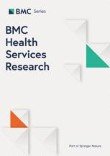
SAIA-MOUD
Opioid-related overdose deaths in Washington State are skyrocketing. Over 50% of opioid users pass through Washington’s jails each year. The risk of overdose is 129-fold higher in incarcerated individuals in the two weeks following their release, compared to the general population.
MOUD in Washington State
Treatment with evidence-based medications for opioid use disorder (MOUD) is effective for preventing overdose, managing OUD, and preventing recidivism. The sequential steps required to appropriately manage OUD are collectively known as the “MOUD care cascade”. An unprecedented influx of resources and political support in Washington State and King County have resulted in broad investments in overdose prevention and response, including programs to make MOUD available for patients incarcerated in jails and connect them to treatment upon release. However, there is little focus on development and use of implementation strategies to improve adoption, application, and sustainability of jail-based MOUD cascades, particularly around linkages between jail- and community-based programs.
Low-cost, systems-level interventions like SAIA are effective and efficient approaches to improve linked cascade services. They can support routinizing strategy and has been shown to be iterative and flexible across a range of contexts and under-resourced settings, responding to changing needs and environments, including fluctuations in local politics and policy-making priorities. This study will apply SAIA to MOUD care systems that are provided in jail health settings and link to MOUD clinics in King County. By focusing on systems-level changes, SAIA-MOUD may be a vital tool to address critical weaknesses in MOUD delivery systems for marginalized patients in King County, WA, and nationally. The SAIA strategy is based on providing frontline health workers with a platform to change their delivery systems and to center improvement efforts on their lens and the experiences of their patients. Expanding inclusivity of decision-making is integral to SAIA-MOUD’s innovation and significance, as frontline care teams often have the knowledge necessary to affect meaningful change in health systems with inefficiencies.
Recent Publications and Presentations
Study Location
SAIA-MOUD Team
Sarah Gimbel, PhD, MPH, FAAN
Principal Investigator
School of Nursing, University of Washington
Contact: sgimbel@uw.edu
Abraham Flaxman, PhD
Co-Investigator
Department of Health Metrics Sciences, University of Washington
Anirban Basu, PhD
Co-Investigator
School of Pharmacy, University of Washington
.
Omeid Heidari, PhD, MPH, ANP-C
Co-Investigator
School of Nursing, University of Washington
Judith Tsui, MD, MPH
Co-Investigator
School of Medicine, University of Washington
.
Kenneth Sherr, PhD, MPH
Co-Investigator
Department of Global Health, University of Washington
Additional Team Members
Anna Kellogg | Study Manager | University of Washington
Emily Callen | Research Assistant | CHOICE Institute, School of Pharmacy, University of Washington
Donors
Partners
Buprenorphine (Bupe) Pathways, Public Health - Seattle & King County
Jail Health Services, Public Health - Seattle & King County
University of Washington













